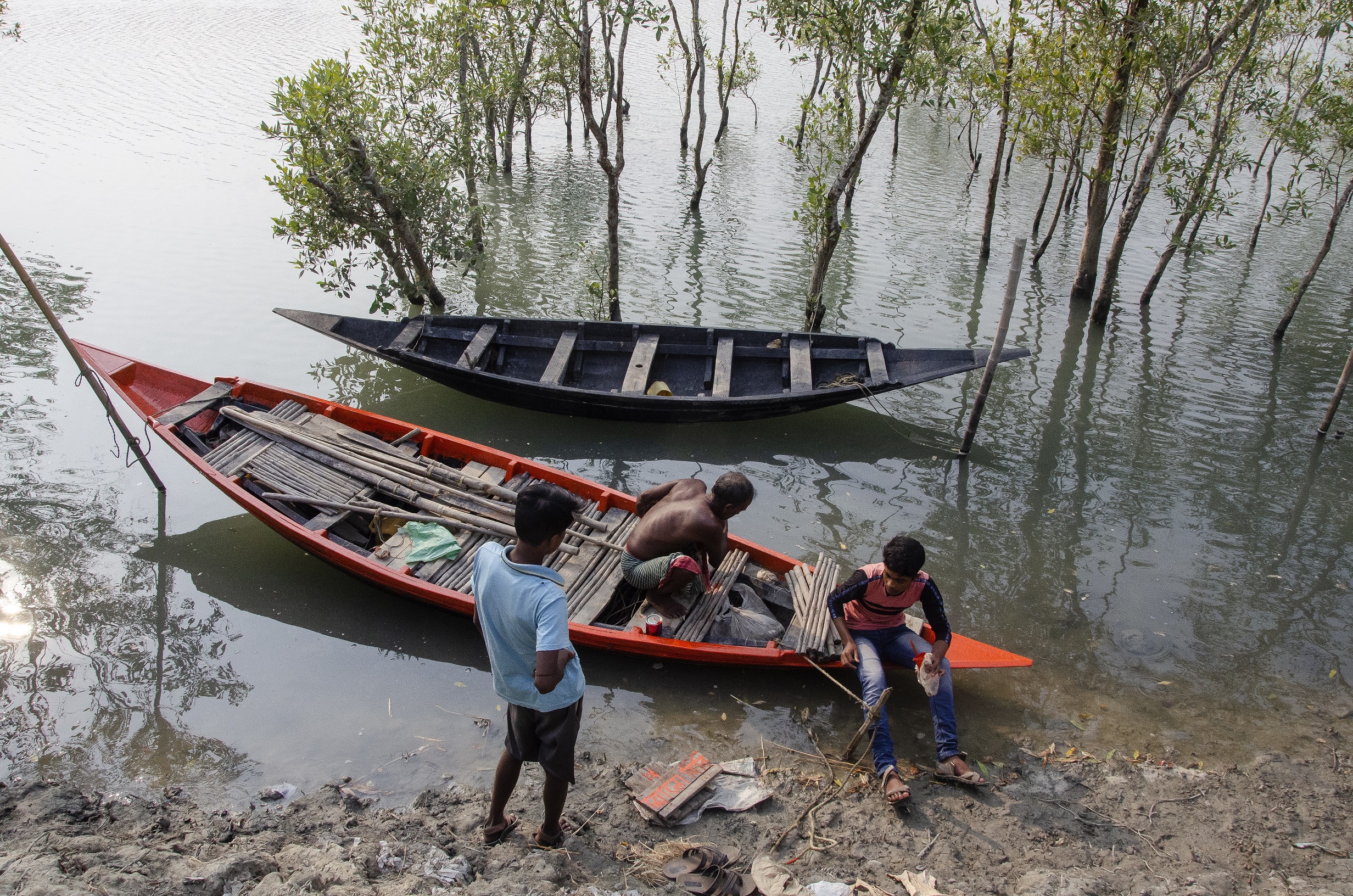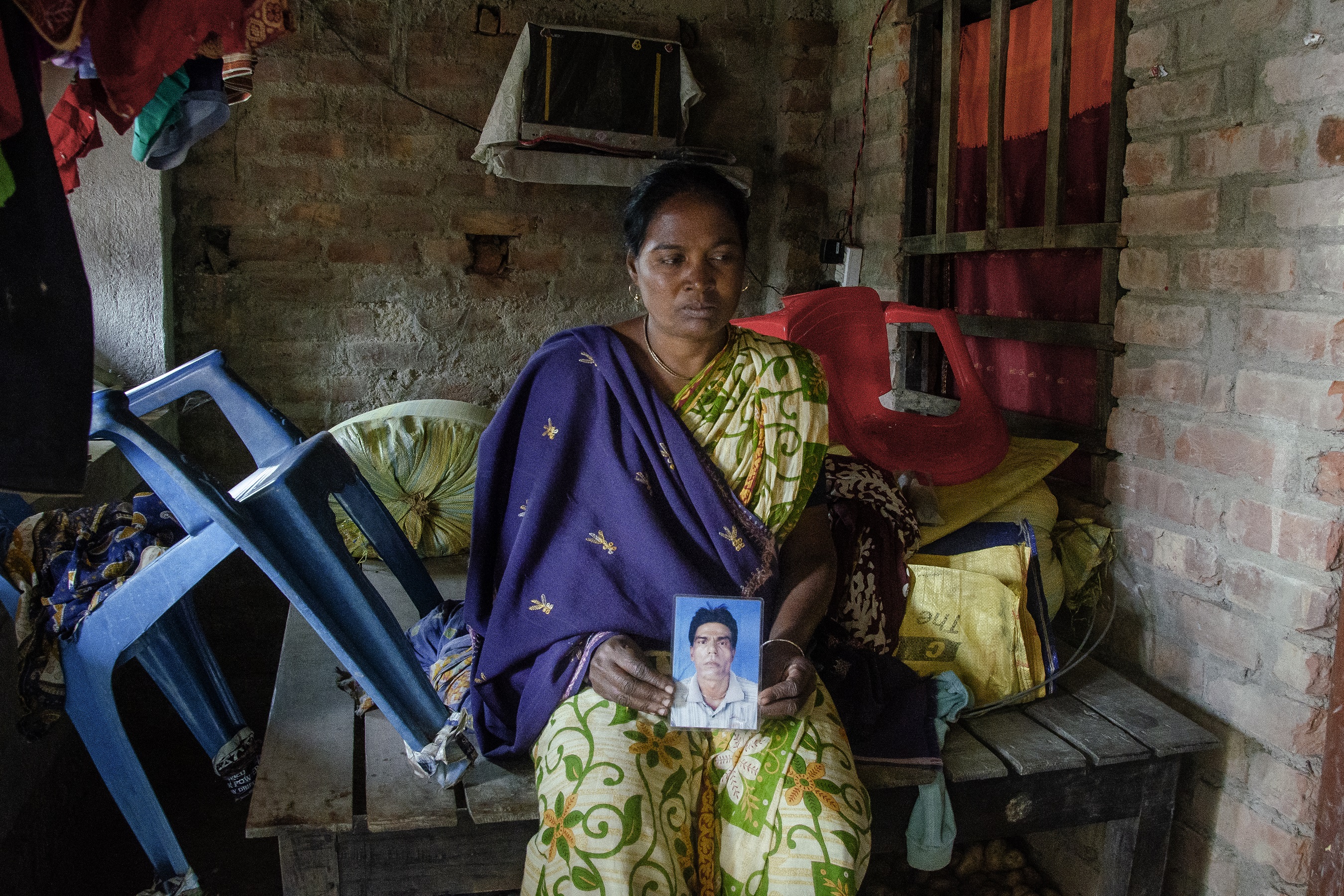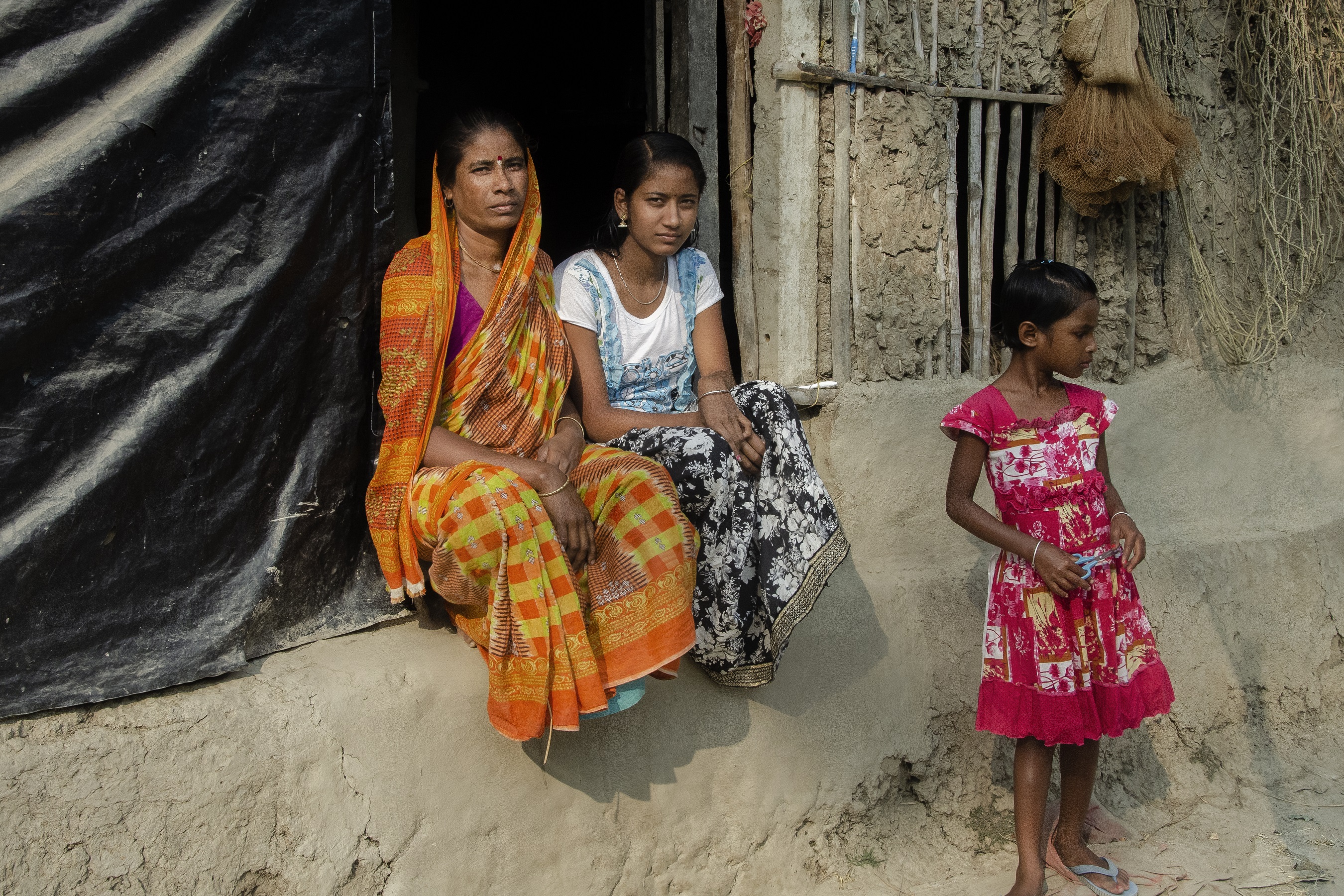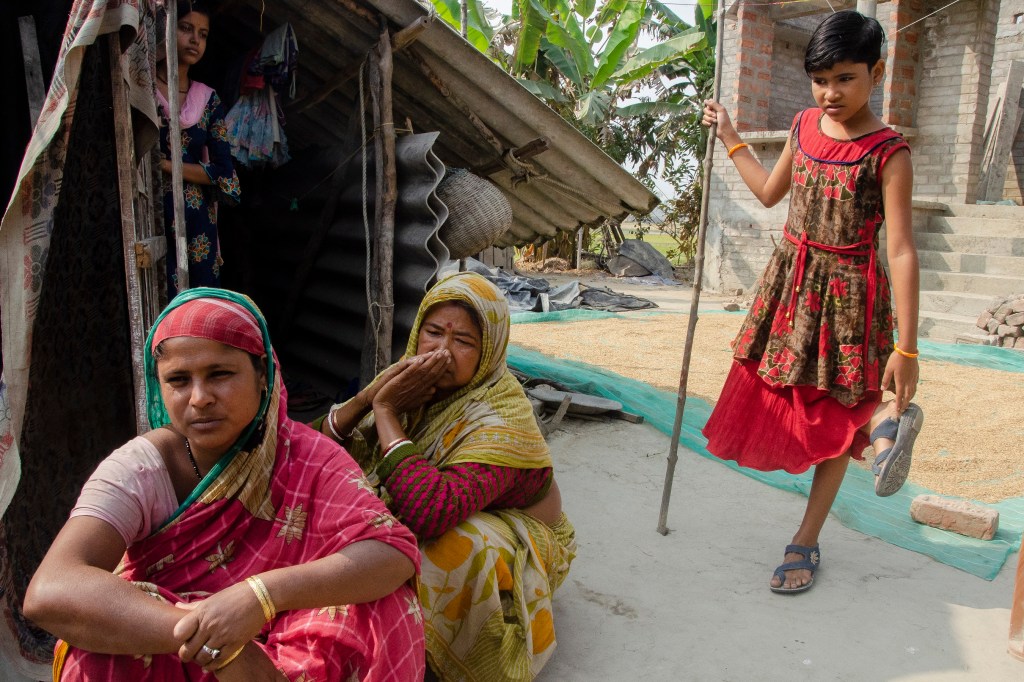SOUTH 24 PARGANAS, India—Sunderban delta: the largest mangrove forest in the world and home to over three thousand “tiger widows”. That refers to women who lost their husbands to tiger attacks.
The forest stretches between Bangladesh in the east and India in the west and is prone to cyclones and floods. Over the years, the fish in freshwater rivers and creeks in the region have also declined because of pollution and rising sea levels.
Videos by VICE
“This is why local people, who are mostly fishermen and farmers, have to venture deeper into the forest, right into tiger territory for their livelihood, which is, catching fish, crab and collecting honey,” Pradip Chatterjee, president of the Dakshinbanga Matsyajibi Forum, an association of the fishing community of south Bengal, told VICE World News.
“Three thousand tiger widows is a moderate estimate,” Chatterjee said, adding that there are multiple villages where every other house has a tiger widow.
But a single trip can bring up to 700 Indian rupees ($10) whereas an entire day of work as an agricultural labourer often nets only $3. But the shadow of death is a constant companion for the villagers who venture into prohibited areas.
Most don’t have permits. Chatterjee says that about 15,000 people have permits, but four times that number are found in forests. “They [villagers] don’t ask for compensation fearing legal action. They are even scared to report deaths,” he said.

The forest department has a critical task at hand. The mangroves are also one of the most critical habitats of the highly endangered Bengal tigers that are found only in the Indian subcontinent. With rising water levels, there are fears of escalating human-tiger conflict and a further decrease in their population.
The year 2020 was particularly severe. Since April, there have been at least 60 deaths, according to villagers.
The reason, they say, is that groups of men returned to the region from big towns and states where they work as migrant labourers for most of the year. More population translated into more men entering into the jungle’s restricted areas and increased tiger attacks.
The government gives monetary compensation only in cases where people did not venture into no-entry zones.
Officially, 21 were reported, and only four qualify for compensation, according to Tapas Das, the field director of Sundarban tiger reserve.
We spoke with three victims in different villages to hear about their experience of losing their husbands. Here, in their own words, they explain their ordeals.
31-year-old Bina Mandal from Satjelia lost her husband on New Year’s eve. The home they were building remains incomplete
In May, after super cyclone Amphan destroyed our hutment, I was clear that I wanted to live in a brick and mortar house that could stand storms and cyclones. Prashanta Mandal, my husband, and I started taking loans for the house and hoped to pay it off soon with the money we made. But there was absolutely no work last year on the farms and no contractor had any information about gigs in the city. So after a long break during the nationwide COVID lockdown, my husband started heading out to the forests to fish again.
On Dec. 31, when Prashanta left for the river, he promised a big catch. As evening fell, a group from the village rushed to our home and informed us that my husband had been dragged away by a tiger. I ran towards the forest in agony, only to see nothing.
After the few initial days when people in the village were helping us with the death rituals contributing however little they could, it dawned upon me that I had absolutely nothing left. I mortgaged the half-acre land we had to repay loans.
I have heard that we can get compensation in such a situation and would plead with the government to do something for us. We are somehow surviving now but don’t know for how long.
Following a long struggle after her husband’s death, the pandemic pushes Haridasi Mandal’s family from Hetalbari back to the forest
My family was traditionally into farming and woodcutting. When the government banned felling of trees in the forest, we started fishing. That is when the government also started giving out passes for those who want to go fishing and collect honey or crabs.
Seven years ago, my husband, Haren, 46, was dragged away by a tiger when he and his group had ventured into the nearby Marichjhapi forest to catch crabs.

This changed the course of our family’s life. Soon after Haren died, the little land we had was acquired by the government as it came in the way of an embankment. We never got the compensation of 1.3 lakh Indian rupees ($1,800), the papers of our land bought by our father-in-law were a mess and the legal hassle was simply impossible at that time. Now, I work as a house help. My sons, aged 34 and 31, keep hopping cities to work as daily wage labourers.
But the boys have been in the village since July because they have not been getting any work in urban centres since the pandemic. With everyone back in the villages and little money to pay, I am not even getting work as a house help.
With putting food on the plate getting difficult every day, my elder son has started making trips to the forests again. I live with the fear of losing another member of the family to the forest.
After losing her husband last year, Sulata Mandal, 35, from Satjelia has been scraping through. But she won’t compromise with her daughter’s education
I haven’t stepped into the forests since April. It reminds me of my husband (Sujit Mandal). It still seems hard to believe.
We used to go to catch crabs together. A month of big catches could mean earnings of around 5,000 Indian rupees ($70). The money was good enough to afford education for our three children, and build a brick and mortar house, coupled with government funding.
When my husband took his boat to the nearby creek to catch fish last April and was attacked by a tiger, I was at home. Sometimes, I feel it would have been better if I was with him. Maybe we wouldn’t go too deep.

My children have made me promise to never go to the forest again. But I am earning very little now doing these odd jobs. Unless I find an option to make enough to run the house, I will have to go back to the forests.
The guardian goddess of the forests won’t be so unfair to me. Even if we get to eat only one meal a day, I will not sacrifice my daughter’s education. She is 14-year old and this is a crucial phase.
After the declaration of lockdown, schools have been shut for nearly a year now and she is losing out. I have decided to arrange for a tuition teacher, a few kilometres away. The classes will take place twice a week and it will cost me four thousand annually.
Follow Dipanjan Sinha on Twitter.




